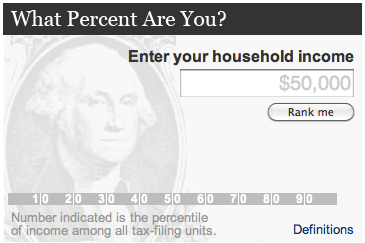ruminations
website by ratsco productions, info@ratsco.com
Perspective
My wife is 5 ft short and I’m 6 ft tall. Being tall or short each have their own advantages and disadvantages. I end up always getting things off the high shelves and she always never has to duck under branches when we go hiking. Most of the time I don’t give her too hard a time about it. I even got her a t-shirt that says: “I’m not short, I’m fun size.”
 But one of my favorite things to do with her is riding on escalators. Whenever we encounter an escalator I, making like I’m a gentleman, let her go first. But being a step or two behind her makes her the same height or even taller than me. So, whenever we go up an escalator I always have her turn around and I lean in and give her a kiss, eye to eye, so to speak. When we go down an escalator I have to remember not to let her go first so I can again be a step or two below her height, and again I lean in and give her a kiss.
But one of my favorite things to do with her is riding on escalators. Whenever we encounter an escalator I, making like I’m a gentleman, let her go first. But being a step or two behind her makes her the same height or even taller than me. So, whenever we go up an escalator I always have her turn around and I lean in and give her a kiss, eye to eye, so to speak. When we go down an escalator I have to remember not to let her go first so I can again be a step or two below her height, and again I lean in and give her a kiss.
Looking up or looking down it’s all a matter of perspective.
The meaning of “rich” is also a matter of perspective. It all depends on our social context and point of comparison.
Donald B. Kraybill, in his book, The Upside-Down Kingdom, writes:
“We pity ourselves when we look up the social ladder and compare ourselves with those above us. We certainly aren’t rich compared to someone making $50,000 a year more than we do. No, we aren’t rich beside the person with a larger house than we have. By looking up the ladder, we’re never rich. Staring up the ladder makes us feel poor. We pity ourselves and the biblical message eludes us. We hope those on the rung above us drop a few leftovers and don’t trample our fingers. But that’s wishful thinking, because the ones above us are also looking up and feeling poor in contrast to the rich above them. So the feeling of poverty spirals ever upward among the rich because no one can ever have enough.
“The upside-down Jubilee perspective of the bible remind[ed the Jews] that once [they] were slaves, once [they] were captives. This reminder shift[ed their] focus downward, where the biblical spotlight always points….When we follow the biblical spotlight, we look down and realize we're rich. When we look down, things suddenly appear different and we are moved to compassion. The Jubilee message strikes home.”
There’s a lot of talk these days about the 99% vs the 1%. Do you know what percent you are?
There is a “What percent are you?” calculator at the Wall Street Journal website that shows where your income falls in the wide range of salaries in the US.

All you do is take last year’s tax return, add up all your “wages, salaries, tips, etc.” and plug the total into the formula. An annual salary above $506,000 puts you in the top 1%, while you need to make less than $2,500 a year to be in the bottom 1%.
For instance, $50,000 a year…puts you in the the top 44%. There are 318 million people in America at the last census. That means there are 178 million people trying to survive on less than you have.
$150,000 annual salary…puts you in the top 11% or there are 283 million people trying to struggle through on less than you have.
$300,000…puts you into the top 3% or there are over 314 million people trying to make a living on less than you have.
We live in the world’s wealthiest nation. Yet 49 million people living in the United States live in poverty. 98 million, or almost one third of the US population, is either poor or just above the poverty level. Nearly 1 in 2 are scraping by on earnings that classify them as low income. Nearly one in four children live in households that struggle to put food on the table. That’s 16.7 million children.
When we follow the biblical way of seeing, we look down and realize we’re rich. When we look down, things suddenly appear different and we are moved to compassion.
-Robert A. Thomas, Priest
December 25, 2011